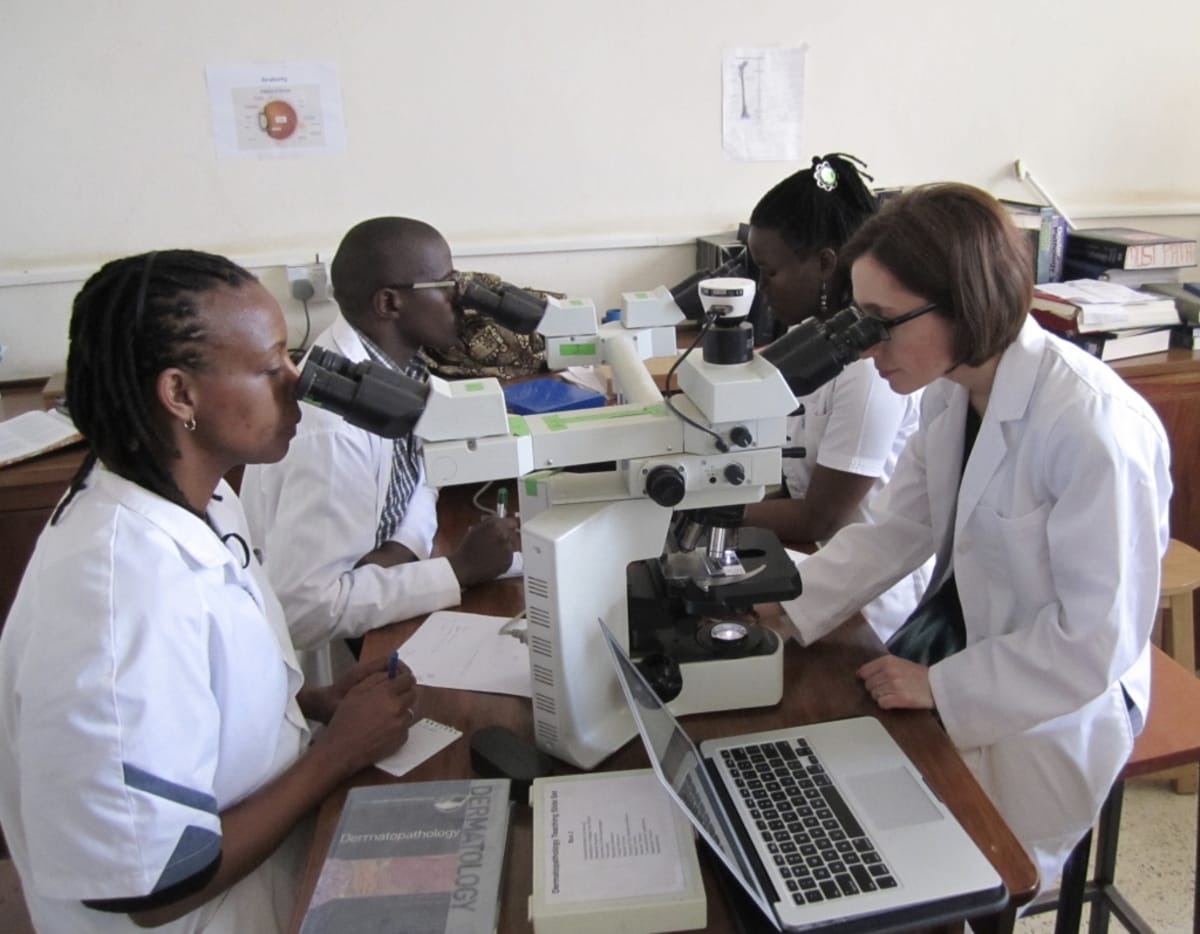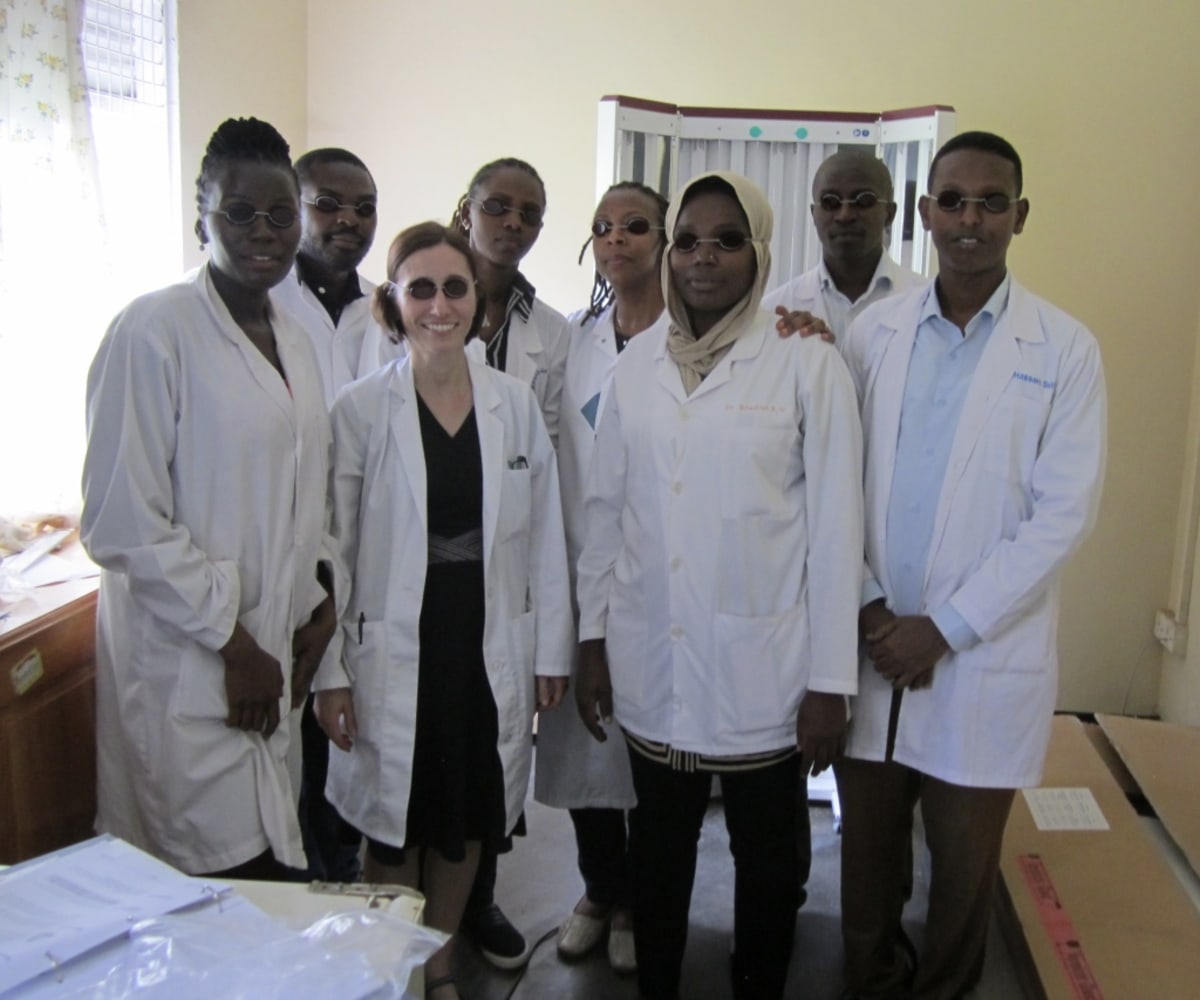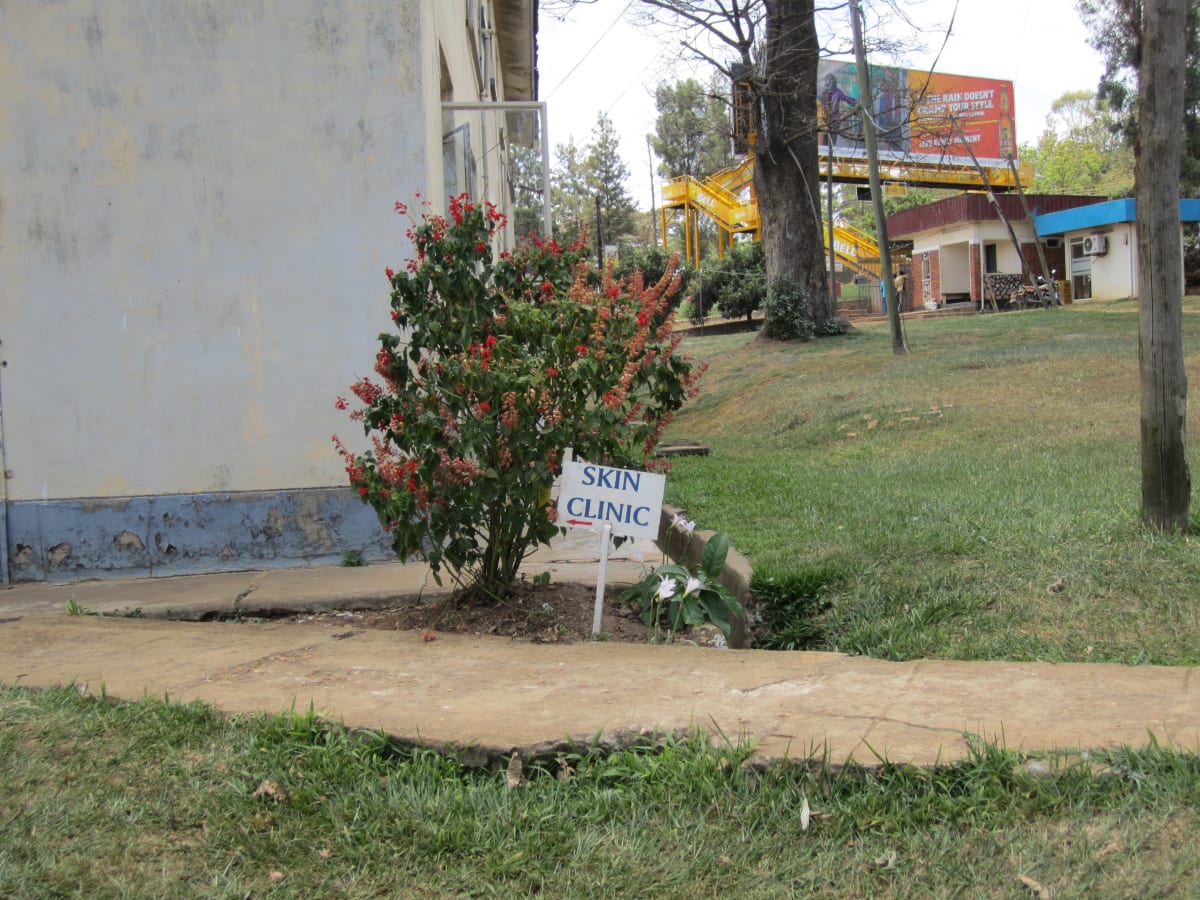The mission of HVO is to improve global health care through education of the healthcare workforce in resource-limited areas. Currently in Uganda there are fewer than 20 dermatologists for 40 million people, yet there is a high burden of skin disease. HVO has an ongoing partnership with the dermatology residency training program in Mbarara, one of only two such programs in East Africa, to educate the next generation of dermatologists.
My role as an HVO volunteer in Uganda is to teach dermatology residents. I will give lectures, teach procedural dermatology skills, and staff resident clinics and hospital consultations. This project is located at Mbarara Regional Referral Hospital which serves the entire SW region of Uganda. Most of the population works in agriculture. Prevalence of HIV is high and HIV-related skin diseases are common. The clinic serves 25-30 patients per day and provides hospital consultations.
The aim of this project is to train the next generation of dermatologists, which is the best way to build capacity to care for patients with skin diseases. Thus far this program has trained several dermatologists who continue to provide essential clinical services in underserved regions of Uganda. Currently there are 8 trainees in the program.
I am truly privileged to work among capable colleagues and trainees in Uganda and am honored to support their dermatology program. In my clinical practice in St. Paul, MN I see many immigrants from East Africa and my clinical experience from Uganda has helped me take better care of these patients. I also teach residents in the University of Minnesota’s Global Health Program about cases from Uganda which improves their understanding of skin diseases from this part of the world.






I am very fortunate to have been able to return to Mbarara, Uganda this year with Health Volunteers Overseas (HVO) to help train dermatology post-graduates (residents).
My work as an HVO volunteer in Uganda focuses on teaching dermatology residents. I have given lectures, taught procedural dermatology skills, and reviewed dermatopathology teaching slides. Most rewarding, however, has been bedside teaching while supervising the resident clinic.
The dermatology department at MUST is small, consisting of one exam room and one procedure room. Patients are seen with a staff dermatologist (including myself, as I am licensed to practice medicine in Uganda) and all the dermatology residents at the same time. Being present in the exam room allows many benefits from a teaching standpoint, including expansion of differential diagnoses, pointing out salient clinical features, discussing management options, and importantly, an wonderful opportunity for me to learn from them about diseases they commonly see. For example, because strong topical corticosteroids are widely available there without a prescription, they are often inadvertently misused and cause disfiguring side effects such as acne and loss of pigmentation. As a result of seeing this in Uganda, I became more adept at recognizing it early when it occurs in my patients from East Africa in the US.
To further support the program I have assisted in the development of a departmental library by donating at least 12 updated editions of major dermatology textbooks. I have also organized the donation of specialized equipment, such as dermatopathology teaching slides and a dermatoscope for diagnosis of pigmented lesions, such as melanoma. With each visit I have also brought suture material, biopsy tools, wound dressings and other supplies essential to dermatology practice which are prohibitively expensive to obtain or not available locally.
I am truly privileged to work among capable colleagues and trainees in Uganda and am honored to support their dermatology program. In my clinical practice in St. Paul, MN I see many immigrants from East Africa and my clinical experience from Uganda has helped me take better care of these patients. I also teach residents in the University of Minnesota’s Global Health Program about cases from Uganda which improves their understanding of skin diseases from this part of the world.
Finally, I am grateful to Dox Foundation for their generous support of this endeavor by defraying the cost of airfare.
Alexia Knapp, MD
HealthPartners Dermatology and University of Minnesota Global Medicine Pathway